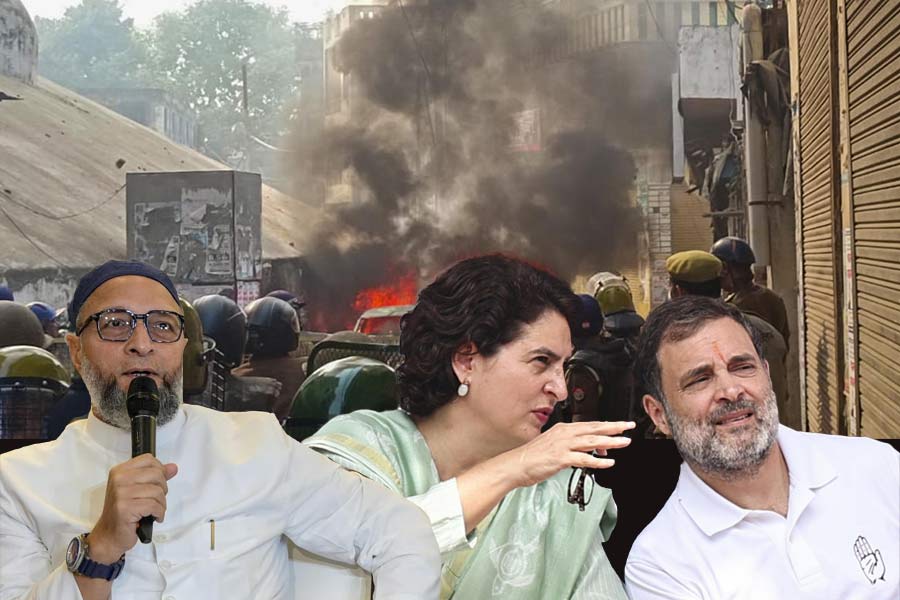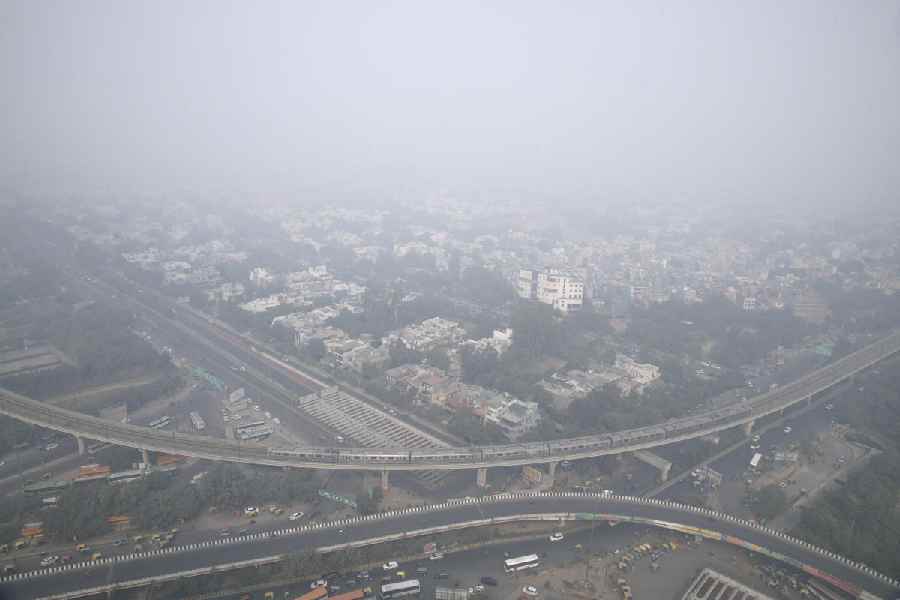“For this is England, a happy country, a land of miracles, where stones underfoot are nuggets of gold and the brooks flow with claret.”
Hilary Mantel’s description of Tudor England in 1536 seems a far cry from Rishi Sunak’s England in 2023. Just back from a two-week visit, I was struck by how, despite the claret still flowing at high tables in Oxford and the stones underfoot mostly appearing unchanged for the last 500 years, there is an overwhelming sense of declinism. The country seemed to be smouldering, with an air of resignation that its best days are behind it. That sentiment was reflected by the crumbling state of its public infrastructure.
Landing at Heathrow has been a nightmare for Indian travellers for a few years now. The perpetually under-staffed UK Border Agency has for long been unable to function with even minimal efficiency. But this time, the immigration queue was the least of our problems. Having emerged from it with our tempers just about intact, we faced an inordinate delay in getting our bags. An airport supervisor said it was a Sunday evening and the airport was short of available staff. Once outside with our bags, we discovered that there were only two functional elevators to take hundreds of passengers with their trolleys to the short-stay car park. A 15-minute wait for an elevator is bad enough but after two hours of being at an airport, following a nine-hour flight, it was nearly the straw that broke this Indian’s back. That honour went to Uber, which for some inexplicable reason cancelled my ride about 10 minutes after it started. Aziz, my Afghan-origin driver, and I were both exasperated and reverted to some old-fashioned South Asian price negotiation to hammer out an all-cash deal. For multiple reasons, it felt like I had landed at Palam in the late Nineties.
Our Heathrow experience may have been one-off, but it served as an apt metaphor for a country struggling to cope. Food inflation on essential items like bread and cereals is at 19.4%. There is an acute scarcity of essential vegetables. This week, there are pre-announced rail strikes on three days which are expected to bring the country to a standstill. Union workers are protesting over a failure by train companies to increase salaries in line with growing inflation. The Tube in London, too, is affected by planned strikes next week over job cuts and pensions. There simply isn’t enough money to pay enough people to keep the entire country running.
The most high-profile example of such chronic underfunding is the National Health Service, the erstwhile crown jewel of the post-war welfare State. The NHS has been falling apart slowly but surely over the last decade. Today, nearly half of all patients have to wait for over four hours for emergency procedures. For non-essential surgeries like knee replacements, the waiting time could be over four months, and the queue to get an appointment with a general practitioner could take more than a year with over six million patients currently in line.
But the NHS I encountered on my trip demonstrated none of these qualities. My son had accidentally slipped out of his stroller and tumbled down a flight of stairs. He bled profusely with a deep cut next to his eye. Within minutes of filling out a form, a nurse bandaged him up. Less than half an hour later, a doctor examined him closely, ensuring that he was not concussed. Finally, another nurse glued up the open wound (no stitches these days, thankfully) and gave him a couple of extra stickers for not crying. Within an hour and a half, despite being a bit shaken, we were home and my son was all right. It did not cost us a single pound and the care and advice were of the highest quality. If any feelings of schadenfreude had been brewing in me, they were firmly nipped in the bud.
I realise that others may not have had a similarly positive experience with the NHS. As a result, many have given up on it and there is a lack of serious political will to restore it to its former glory. It has become a tragic symbol of the inevitability of British decline. But like the NHS that surprised me, the world would be silly to write Britain off just yet.
This is because British declinism coexists with a pragmatic realisation of how to make the best of its new place in a changing world order. This is captured by the English Premier League, earlier the stomping ground of local lads, now the plaything of rich sheikhs. Last season, the EPL was a two-horse race between a club owned by the Sultan of Abu Dhabi and another owned by the son-in-law of the Walmart family, himself an American magnate. Their closest challenger was a club taken over by the Saudi Arabia Public Investment Fund, the long arm of the Saudi government. In leagues below, supporters are often found hankering for foreign ownership to rescue their clubs. The long-cherished value of pulling oneself up by the bootstraps is antiquated in an age where boots don’t have as many straps as sponsors.
All this is reminiscent of a different age, in a different part of the world. As the Ganga flowed downstream in Bengal, European companies jostled for positions on its banks. The Portuguese set up base in Bandel, the French in Chandernagore, the Dutch in Chinsurah, the Danes in Serampore, leaving the British to the most downstream location, first near Hooghly and, then, when Siraj ud-Daulah sacked Calcutta, to Falta, further downstream. Each of these companies aimed to profit from trade in locally produced goods by selling them in European markets. The British emerged victorious —local nawabs like Siraj ud-Daulah were defeated, smaller chieftains persuaded, and businessmen tempted to switch sides.
By offering up the EPL as a colony for the global rich and powerful, a metaphor that can be extended to the city of London, and, to a lesser extent, to the universities of Oxford and Cambridge, the United Kingdom is re-enacting this script. The boot, however, is now firmly on the other foot. Can English football maintain its global dominance by being sold to the global elite? Or, like colonisation in India, will such investment be the ruin of the local economy? Can the city of London retain its pride of place as the financial capital of the world by enticing the rich and famous to buy houses in Mayfair and Kensington? Can Oxford and Cambridge remain top universities by getting endowments from philanthropists in the Gulf and the Indian subcontinent? On the whole, can the United Kingdom halt its sense of declinism on the backs of the petrodollar? This is a risky strategy but in it is the first clear sign of the United Kingdom’s consciously articulated self-image in a world after Empire. It may not be a happy country today, but it is certainly betting on still being a land of miracles.
Arghya Sengupta is Research Director, Vidhi Centre for Legal Policy. Views are personal.











